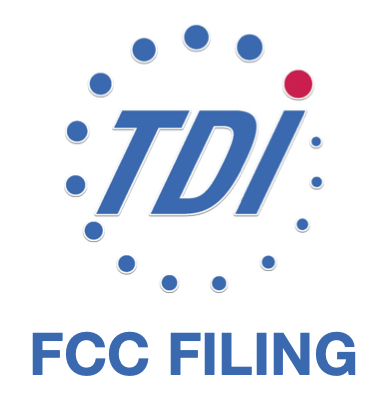[vc_row][vc_column][vc_column_text css=”.vc_custom_1584590963275{background-color: #b7d9f4 !important;}”]TELECOMMUNICATIONS RELAY SERVICE
CG 03-123 — Telecommunication Relay Services and Speech-to-Speech Services for Individuals with Hearing and Speech Disabilities;
CG 13-24 — Misuse of Internet Protocol (IP) Captioned Telephone Service;
[/vc_column_text][vc_custom_heading text=”EX PARTE” font_container=”tag:h3|text_align:left” use_theme_fonts=”yes” css=”.vc_custom_1584590975896{background-color: #f4d2cd !important;}”][vc_column_text]Claude Stout of TDI, along with representatives from the tagged Consumer Groups (Lise Hamlin- HLAA, Zainab Alkebsi-NAD, Linda Kozma-Spytek and Christian Vogler- TAP) and Mikaela Colvin, Kelsey Fayer, and Blake E. Reid of the Samuelson-Glushko Technology Law & Policy Clinic at Colorado Law (TLPC), counsel to TDI, met with Diane Burstein, Eliot Greenwald, Bob Aldrich, Michael Scott, and Debra Patkin of the Consumer and Governmental Affairs Bureau, Susan Lee and Virginia Metallo of the Office of Economics and Analytics, and David “Raster” Schmidt of the Office of the Managing Director.
We discussed the use of automatic speech recognition (ASR) for Internet Protocol Captioned Telephone Service (IP CTS) and the pending applications for certification of MachineGenius, VTCSecure, and Clarity for ASR-based IP CTS service. We reiterated the Consumer Groups’ perspective that ASR holds significant promise for the provision of IP CTS as well as our concerns that the pending applications lack sufficient information about the applicants’ proposed services on dimensions of quality, privacy and 911 connectivity.
- We underscored the importance of the Commission setting and ensuring adherence to technology-neutral minimum standards for quality, privacy, and 911 connectivity across the board for all IP CTS providers.
- We noted that the unique challenges that ASR presents for quality, privacy, and 911 connectivity are not fully addressed by the Commission’s existing minimum standards, many of which presume the presence of a Communications Assistant (CA).
- We urged the Commission to require the pending ASR applicants to provide additional evidentiary support on the record for their quality, privacy, and 911 connectivity practices and commitments.
- We noted that harms to consumers may result if the applications are granted prematurely without sufficient information being made available to the public, including harms to consumer privacy and the likelihood of competitive distortions to the IP CTS marketplace.
[/vc_column_text][vc_column_text]
URL for Full Filing Document on FCC’s Electronic Comment Filing System
[/vc_column_text][vc_column_text]https://ecfsapi.fcc.gov/file/101170913415220/2020.01.17%20Consumer%20Groups%20and%20Accessibility%20Researchers%20IP%20CTS%20ASR%20Ex%20Parte%20final.pdf[/vc_column_text][vc_column_text]Special Thanks to: SAMUELSON-GLUSHKO TECHNOLOGY LAW & POLICY CLINIC,[/vc_column_text][/vc_column][/vc_row]

